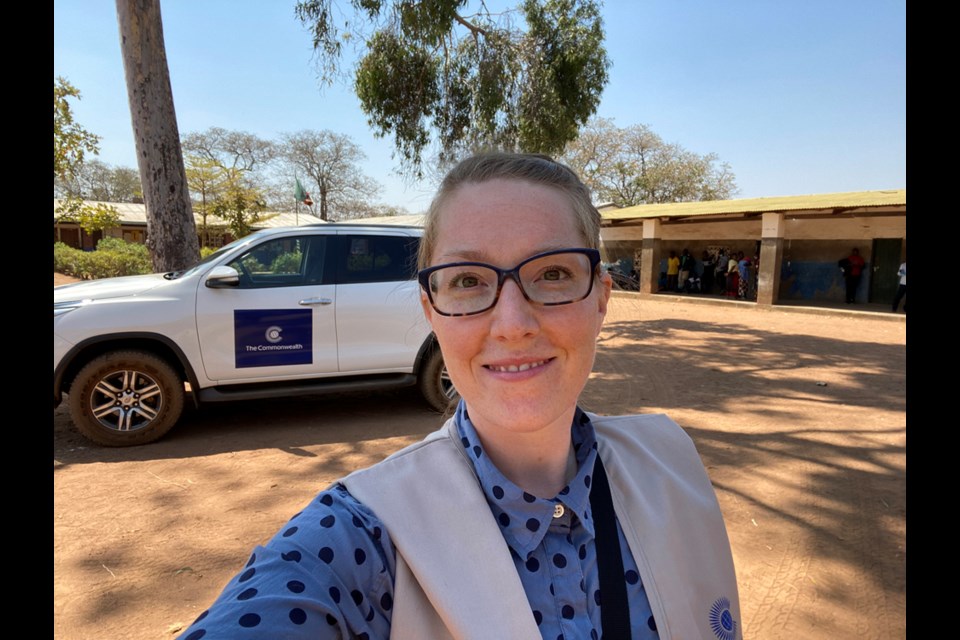Having spent the past 16 months at home in North Vancouver due to the pandemic, I never expected that my first time outside the province would be to Africa, in a remote corner of Zambia, wearing a khaki vest with the word Commonwealth emblazoned across the back.
At the request of Patricia Scotland, the Commonwealth secretary general, I joined a group of 12 eminent persons from across the 54 nations of the Commonwealth to observe the recent Zambian election. Zambia welcomed other global delegations, including the European Union and African Union. Observers play an important role in promoting free and fair elections, watching for adherence to laws and electoral procedures and providing strengthening recommendations.
The 2021 election was a hotly contested rematch for Hakainde Hichilema of the main opposition party, who hoped to unseat the incumbent president, Edgar Lungo. The two had sparred for the presidency on three previous occasions and this time would undoubtedly be the last chance for both candidates. The election was also a test of Zambia’s democracy and reputation as a peaceful nation.
The election took place amidst a challenging backdrop of a crippled economy, high unemployment, a global pandemic, and widespread mistrust of the police, state media, constitutional court, and the electoral commission. Days before we arrived, the government took the unprecedented step of deploying the military to quell pockets of political violence and unrest.
As the sun rose at 6 a.m. on Aug. 12, the poll in Chipata Central opened to a patient crowd of Zambians. The anticipation was palpable amongst the polling officials who had spent the night with meager provisions and who would remain until the following day to count the ballots and close the poll. Today was their day as much as it was for the hundreds who gathered as early as 2 a.m. to cast their ballots. After allegations of partisanship and planned fraud by party supporters, all eyes would be on them as they executed their duties.
Young people, often marginalized and unemployed, took their place in the elections process, serving in every facet of the election, from polling staff to party agents tasked to watch over the vote. Unfortunately, some were used as agents of violence through groups called cadres, sent to disrupt opponents, storm radio stations, and harass candidates.
As the sun set on election day, the counting began. The tired but determined officials began the orderly count in front of a crowd of watchful party agents and observers. The streets were quiet as we left the polling station. It felt anticlimactic. When the results were finally announced days later, the margin was nearly a million votes in favour of HH. While the pre-election was fraught with challenges, Zambians should be commended for a peaceful transfer of power and their commitment to democracy.
While results were being counted in Zambia, a federal election was called in Canada and I began to think of our own democratic journey. Democracy, anywhere around the world, is a work in progress and should not be taken for granted. As voters, we must be vigilant in holding those that seek to represent us accountable. Elections are our chance to demand better for our country. Politicians and party platforms reflect us, what we call for and what we allow. Like in Zambia, the recent election in the United States, or the chaos unfolding in Afghanistan, these are all reminders that peace and democracy are not guaranteed and must be guarded. While our democracy does not appear threatened, I urge all Canadians to cherish their rights and cast their votes on Sept. 20.
Alicia Peters was awarded the Queen's Diamond Jubilee Medal for her work with youth and the democratic process in Canada and across the Commonwealth. This was her second election observation mission to Africa. She lives in North Vancouver.


